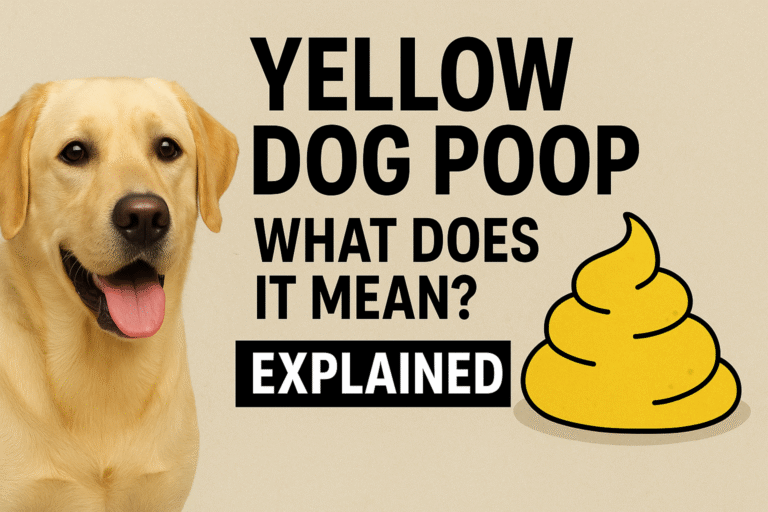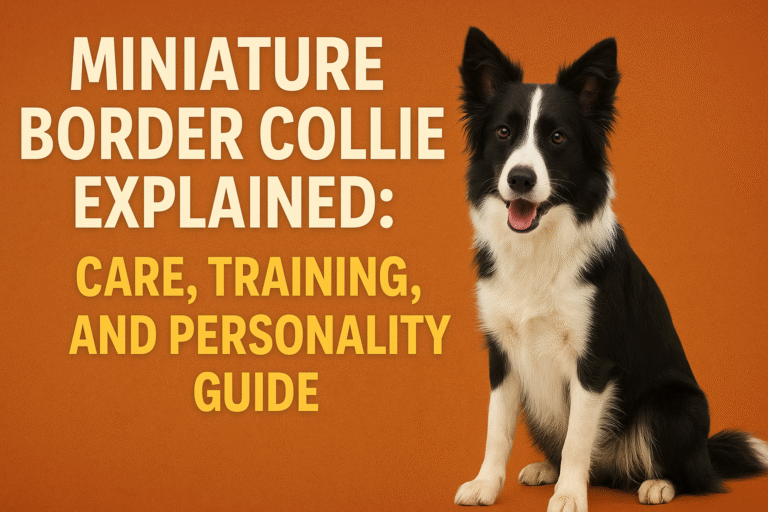Is Your Dog Panting at Night? Causes and Solutions You Should Know
Panting in dogs is a never-ending list of options—it’s their natural way of cooling themselves, particularly after physical exertion or hot weather. Why, therefore, would your dog be seriously panting at nighttime when the environment is quiet and cool? Nighttime panting is a continuum ranging from stress to illness. The way to relief for your pet starts with knowing what caused it.
Here, we are discussing why dogs pant at night, when to worry, and how you can make your pet sleep better.
Why Dogs Pant at Night
Panting is the body’s natural way of cooling down in dogs. The dog is not able to sweat like human beings do, and as such, they cool through panting. Night panting is typically a problem since the environment during this time is cold and less stimulating.
If your dog excessively pants during the night, it may mean one of the following:
- Problems with heat regulation
- Stress or anxiety
- Medical issues (e.g., heart or breathing illnesses)
- Discomfort or pain
- Side effects of drugs
Let’s detail those out.
1. Normal vs. Abnormal Panting
Panting isn’t always a bad thing. Sometimes it’s entirely normal.
When panting is normal
- Following exercise or play
- In rambunctious puppies winding down to sleep
When panting is abnormal
- Occurs every night without apparent reason
- Sounds more labored, faster, or more strained
- Most commonly in association with pacing, whining, or restlessness
- Usually in conjunction with other symptoms of ill health such as coughing or drowsiness
If your dog is abnormal in its panting, it may be worth looking into.
2. Heat and Temperature Control
Dogs are more susceptible to heat than humans, particularly heavier-coated breeds or brachycephalic breeds. An even slightly warm environment can cause over-panting.
What to do
- Maintain a comfortable sleeping space for your dog by using fans or air conditioning to keep it cool.
- Provide cold water at night.
- Avoid exercised in the late evening on hots day.
3. Stress and Anxiety
As it does with human beings, dogs also have nighttime anxiety. Noise, isolation from their owners, or even changes in home routine may trigger anxiety.
Indicators of anxiety panting
- Pacing around and fidgeting
- Whining and barking
- Shaking as well as panting
Remedies:
- Utilize calmings aids anxiety wraps or pheromone diffusers thats are dogs safed.
- Created a nightly routine to calm them down.
4. Pains and Discomfort
Although you cant ask a dog straight out if it’s hurting excessive panting is generally an unmistakable indication of discomfort. Arthritis injury or internal distress can be worse at night when they’re resting.
Indications that your dogs is in pain:
- Difficulty lying down or standing up
- Whining when touched
- Avoiding being picked up and moved around during the days
What you can do:
Adequate pain control can significantly enhance a dog’s comfort and capacity to rest and sleeps.
5. Medical Conditions Responsible for Nocturnal Panting
There are certain medical conditions that will cause nocturnal panting. These include:
- Heart disease: Decreased oxygen supply leads to rapid respiration.
- Respiratory problems: Laryngeal paralysis or collapsings trachea are conditions.
- Cushings disease: Excessed productions of cortisol leads to pantings restlessness and thirst.
- Obesity: Excess weight puts extra strain on the lungs and heart whichs can cause breathing difficulties.
If panting is followed by coughing, weight loss, or excessive fatigue, it’s time to visit the vet.
6. Side Effects of Medication
Some drugs, like steroids, have dogs panting as an undesirable side effect. If your dog just started a new drug, speak with your vet to see if this can be a problem.
7. Senior Dogs and Nighttime Panting
Senior dogs are more likely to pant at night due to age-related conditions:
- Decline in cognitive function (animal form of human dementia) can lead to agitation.
- Arthritis pain may be more significant when in reclining position.
- Senior dogs can have impaired heart and lung function.
Taking care of an aging dog requires increased alertness to breathing changes.
8. When to Call a Veterinarian
Panting is benign sometimes, but excessive night-time panting never. If you observe:
- Frequent or mores excessived night-time panting
- Trouble breathing wheezing or gagging
- Panting with coughing fainting or vomiting
- Sudden change in attitude
There is a need for early detection in order to treat underlying causes effectively.
9. Soothing Your Dog’s Slumber
Based on the cause how about these remedies to soothe your dog’s night time panting:
Alter the environment
- Reduce room temperature.
- Use a cooling mat or fan.
- Make water readily available.
Reduce stress
- Establish a soothing bedtime ritual.
- Provide comforting reassurance without rewarding anxious behavior.
- Employ natural calmants when necessary.
Optimize health and well-being
- Maintain a healthy weight.
- Provide regular exercise (age and breed specific).
- Provide a well balanced diet to helps prevent health issues that may leads to panting.
Discuss with your vet
- Discuss a change of medications if side effects are causing panting.
- Discuss treatment of diseases like arthritis, heart disease, or Cushing’s disease.
10. Preventing Panting At Night
You cannot help but pant in all circumstances, but you can lower the chances of doing so by:
- Keeping your dog at a regular weight.
- Maintain regular vet appointments to detect any health issues at an early stage.
- Ensure your dog gets plenty of daily exercise to promote restful sleep at night.
- Reducing stress and giving sufficient sleeping space.
FAQs About Dogs Panting at Night
- Is night panting common in dogs?
Occasional light pantings may be acceptable especially after a warm days. Recurring or heavy night panting is a warning signs. - Can dog panting at night be an indication of anxiety?
Evening stress and separation anxiety are common reasons for excessive panting on the part of dogs when trying to sleep. - Should I worry if my older dog pants at night?
Yes, older dogs are more prone to arthritis heart diseased and mentals deterioration. A checkup bys the veterinarian is recommended. - How can I recognize panting as caused by pains?
If accompanied by whining struggling to lie downs or sensitivity to touch, pains is likely to be the causes. - Can I treat my dog for panting with medication?
Only on prescription of the veterinarian. Never give human medicine to dogs. - Will a cooling mat cause my dog to pant less at night?
Yes, cooling mats do serve to keep the body temperature and reduce heat-induced panting.
Conclusion
Nighttime panting in dogs is not always an emergency, yet it’s never something to overlook either. Occasionally its just your dogs cooling downs. Other times it’s a sign of stress pain or a medical condition.
Through watching your dogs adapting their environment and seeing a veterinarian as needed you can ensure your pet gets the restful healthy sleep it required.







